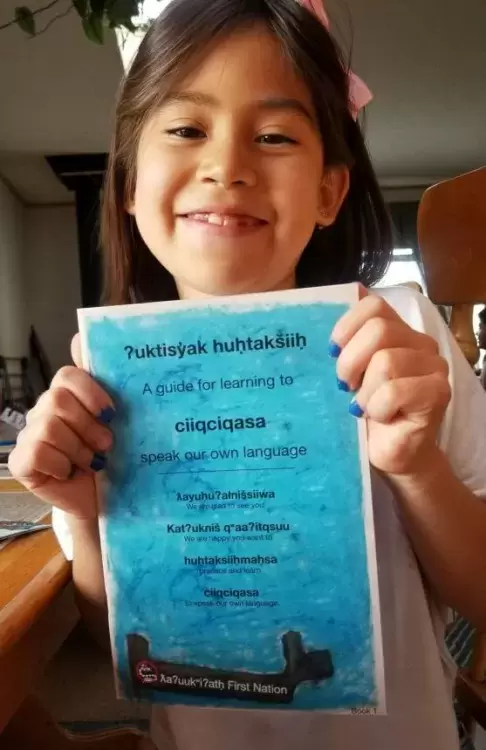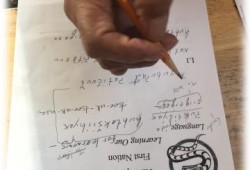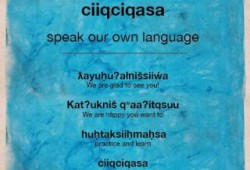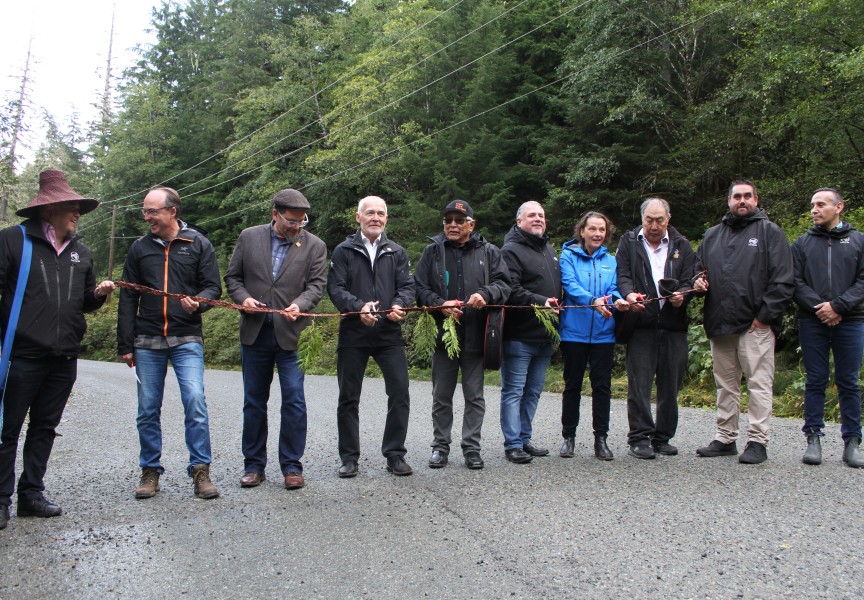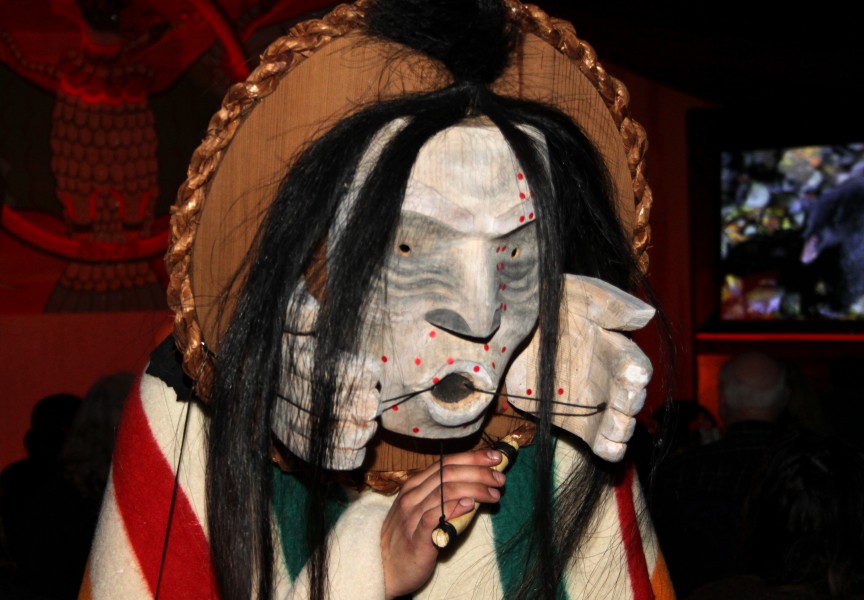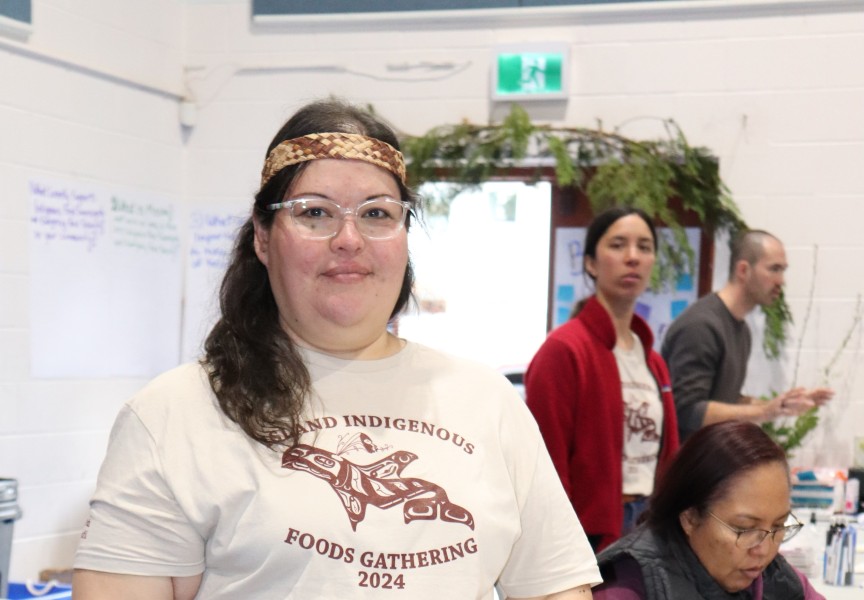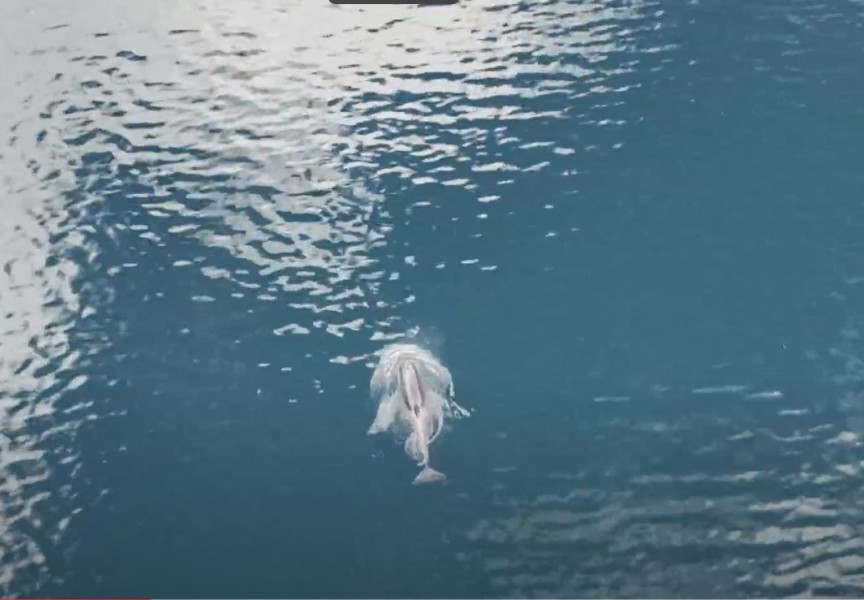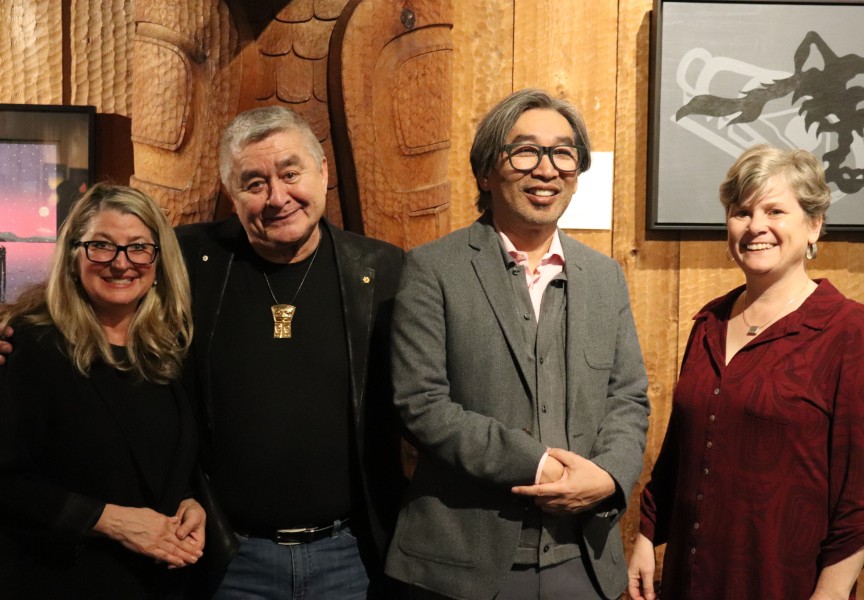The foundation for Tla-o-quia-ht’s language learning and revitalization is progressing with the release of a new beginner language book with accompanying audio cd and flashcards. The project, ʔuktisýak huḥtakšiixḥ ciiqciqasa (A guide for learning to speak our own language), will be first shared with the Tla-o-qui-aht Community at their December 14, 2017 Christmas Party.
It started as a University of Victoria Language Revitalization class assignment and became a community project creating a tool for beginning Tla-o-qui-aht language learners. A step in the direction of fluency, one of project coordinator Ivy Martin’s goals with the book is “to build confidence around what’s considered beginner. With this book, we may find we know a lot more than we thought we did and that it’s possible to relearn what some of us thought was lost.”
ʔuktisýak huḥtakšiixḥ ciiqciqasa (A guide for learning to speak our own language) includes a section for parents and teachers generated from phrases provided by Headstart coordinator Carol Frank, and translated by Moses and Levi Martin.
The audio CD provides recordings of fluent Tla-o-qui-aht first speakers and some students to provide assistance with pronunciation. “My children acquired the Nuu-chah-nulth sounds from listening to recordings of family elders, as well as everyday language usage in our family,” said Martin. “While that took us a step towards learning the alphabet, what I did for my family was to put little books and flashcards around the house. That included words they already knew spelled in Nuu-chah-nulth characters and then sound it out underneath. That would help them connect the sound with the letter.”
It is Martin’s hope that this project includes a wide array of people - from as young as seven to Tla-o-qui-aht first speakers born before 1945 - and that it will continue to be inclusive and connected.
“I feel the language has power to heal and connect families, in part by connecting the youngest with the eldest generations around something that is of value to Tla-o-qui-aht,” said Martin. “We have the choice to strengthen our connections by honouring the important role of every person within Tla-o-qui-aht nation in tending to the language…No role is a small role. Every time someone is using the language, every time family shares language we’re adding to Tla-o-qui-aht’s language foundation.”
The learning suggestions like “I spy” included in the book and the counting song build upon the “learning through fun” and the development of language as one aspect of communication. “How we communicate as Quuʔas extends beyond just the words that are spoken to include our body language, our expressions, tone of voice,” said Martin. “Think how we raise our eyebrows. So when we connect with each other with language as a family it’s fun and it’s rich with learning opportunity to explore the other areas of our communication as well.”
“While our children may be saying things with an English accent at times, they are really confident and it’s critical they haven’t had any negative experiences surrounding it to contaminate their willingness to learn and speak and contribute,” she added.
First speakers and Tla-o-qui-aht Elders, Dora Frank, Levi Martin and Moses Martin contributed translations and recordings. Senior Tla-o-qui-aht Language student Gisele Martin, shared some of her musical learning tools for inclusion in the accompanying cd and language students Triton and Huya Martin shared their knowledge of the alphabet in the audio.
Artists Marika Swan, Andrea Fergusson, Gene Antoine, Wiya Martin and Ivy herself provided the artwork for the book.
“When we really begin to learn and understand our language we will begin to live how our elders hoped by being the responsible caretakers we say we are,” said Tla-o-qui-aht elder, first speaker and project contributor Moses Martin. “My own hope is that in 10 or 20 years Clayoquot Sound will adopt the Tla-o-qui-aht Language as an official language.”

